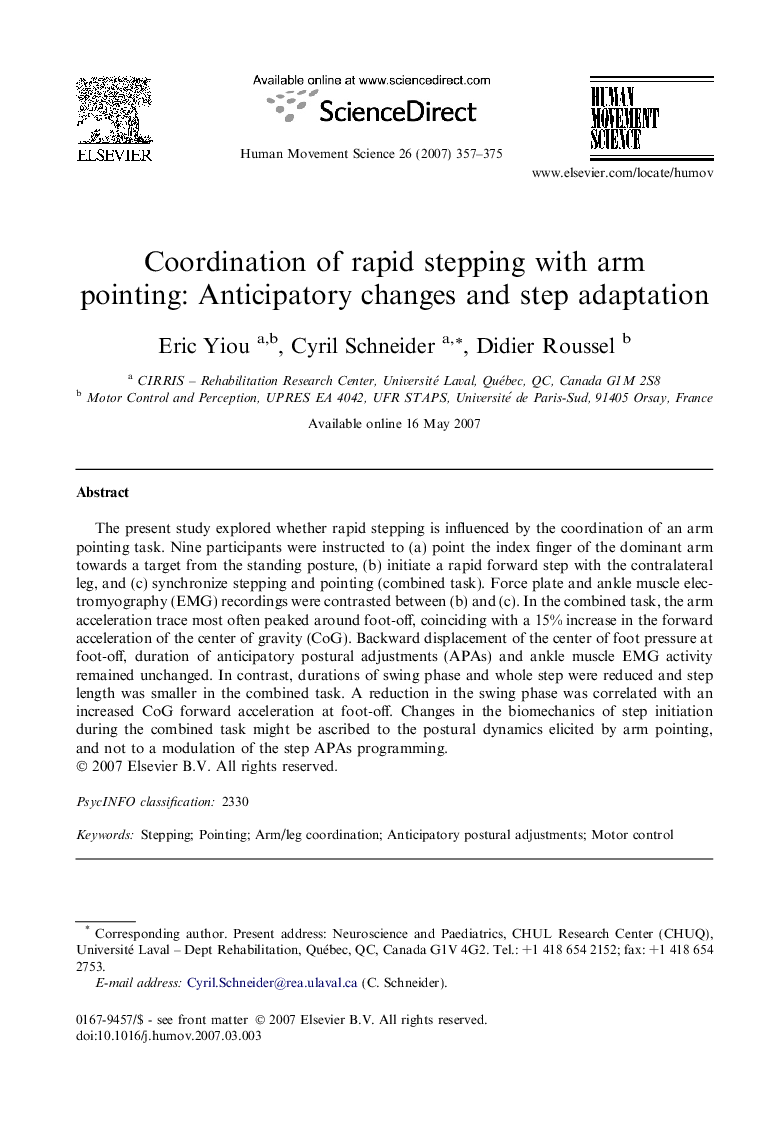| Article ID | Journal | Published Year | Pages | File Type |
|---|---|---|---|---|
| 928852 | Human Movement Science | 2007 | 19 Pages |
The present study explored whether rapid stepping is influenced by the coordination of an arm pointing task. Nine participants were instructed to (a) point the index finger of the dominant arm towards a target from the standing posture, (b) initiate a rapid forward step with the contralateral leg, and (c) synchronize stepping and pointing (combined task). Force plate and ankle muscle electromyography (EMG) recordings were contrasted between (b) and (c). In the combined task, the arm acceleration trace most often peaked around foot-off, coinciding with a 15% increase in the forward acceleration of the center of gravity (CoG). Backward displacement of the center of foot pressure at foot-off, duration of anticipatory postural adjustments (APAs) and ankle muscle EMG activity remained unchanged. In contrast, durations of swing phase and whole step were reduced and step length was smaller in the combined task. A reduction in the swing phase was correlated with an increased CoG forward acceleration at foot-off. Changes in the biomechanics of step initiation during the combined task might be ascribed to the postural dynamics elicited by arm pointing, and not to a modulation of the step APAs programming.
